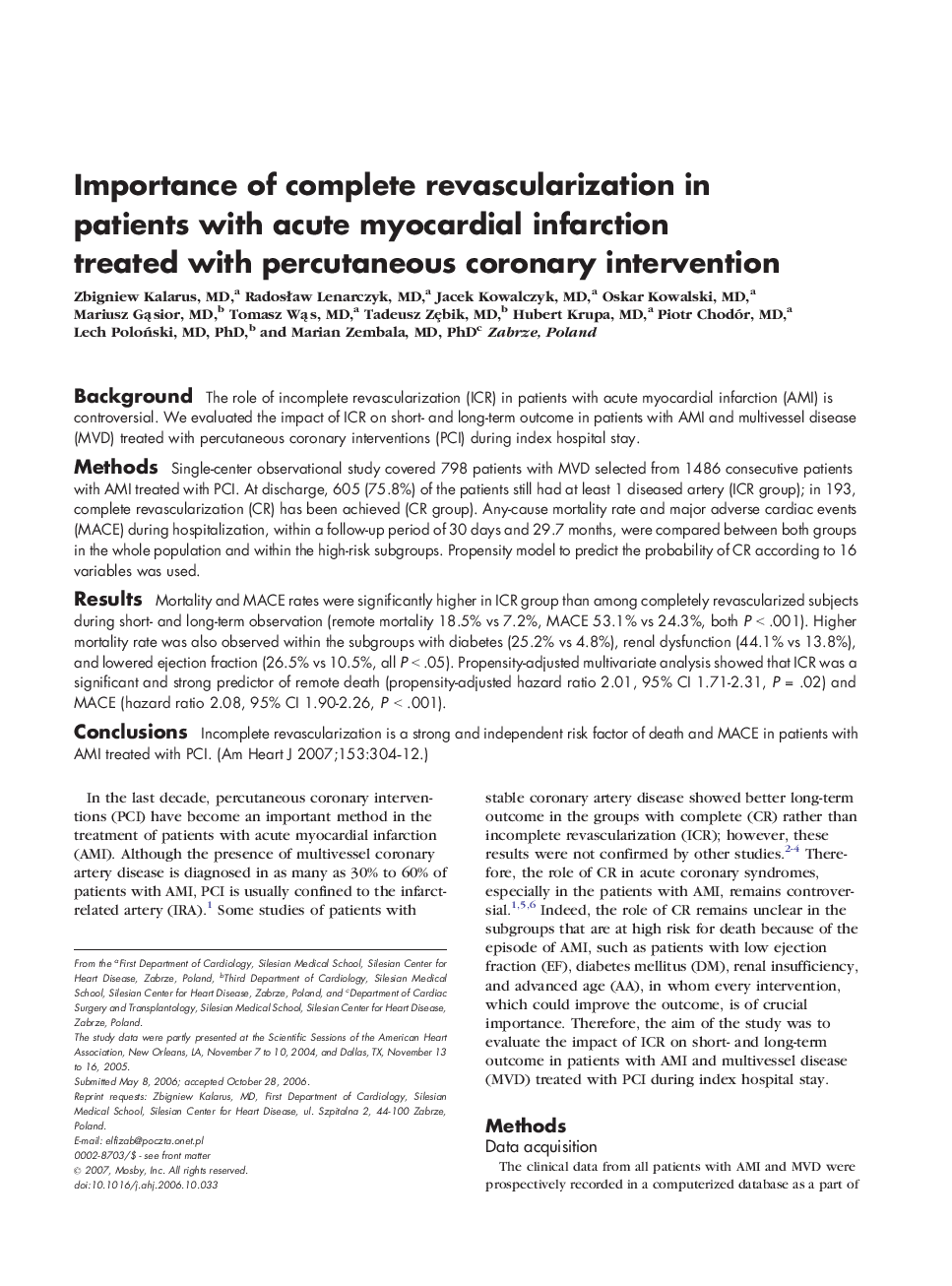| Article ID | Journal | Published Year | Pages | File Type |
|---|---|---|---|---|
| 2850036 | American Heart Journal | 2007 | 9 Pages |
BackgroundThe role of incomplete revascularization (ICR) in patients with acute myocardial infarction (AMI) is controversial. We evaluated the impact of ICR on short- and long-term outcome in patients with AMI and multivessel disease (MVD) treated with percutaneous coronary interventions (PCI) during index hospital stay.MethodsSingle-center observational study covered 798 patients with MVD selected from 1486 consecutive patients with AMI treated with PCI. At discharge, 605 (75.8%) of the patients still had at least 1 diseased artery (ICR group); in 193, complete revascularization (CR) has been achieved (CR group). Any-cause mortality rate and major adverse cardiac events (MACE) during hospitalization, within a follow-up period of 30 days and 29.7 months, were compared between both groups in the whole population and within the high-risk subgroups. Propensity model to predict the probability of CR according to 16 variables was used.ResultsMortality and MACE rates were significantly higher in ICR group than among completely revascularized subjects during short- and long-term observation (remote mortality 18.5% vs 7.2%, MACE 53.1% vs 24.3%, both P < .001). Higher mortality rate was also observed within the subgroups with diabetes (25.2% vs 4.8%), renal dysfunction (44.1% vs 13.8%), and lowered ejection fraction (26.5% vs 10.5%, all P < .05). Propensity-adjusted multivariate analysis showed that ICR was a significant and strong predictor of remote death (propensity-adjusted hazard ratio 2.01, 95% CI 1.71-2.31, P = .02) and MACE (hazard ratio 2.08, 95% CI 1.90-2.26, P < .001).ConclusionsIncomplete revascularization is a strong and independent risk factor of death and MACE in patients with AMI treated with PCI.
